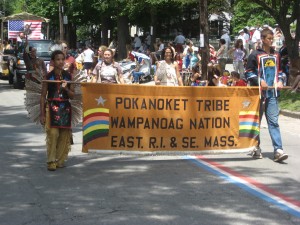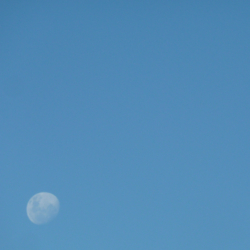| Hebrew | English |
|---|---|
For all the boons in our lives we offer our thanks to you YHVH our God and in blessing your Name we hope that all of life will bless You too and especially today because: | |
בִּיְמֵי הַמְהַגְּרִים נְקִיֵּי הַדַּעַת כְּשֶׁהִגִּיעוּ לְאֶרֶץ מִקְלָטָם וְסָבְלוּ רָעָב וְקוֹר נָשְׂאוּ רִנָה ותְּפִילָה לְצוּר יְשׁוּעָתָם אָז עָמַדְתָּ לָהֶם בְּעֵת צָרָתָם וְעוֹרַרְתָּ חֶמְלַת הַתּוֹשָׁבִים הָאִינְדִיָאנִים עֲלֵיהֶם וְהֶאֱכִילָם מָזוֹן, בַּרְבּוּרִים וְתִירַז וְכׇל מַעֲדָנִים הִצַלְתָּם מֵרָעָב וְיָגוֹן וְהָרְאֵתָ לָהֶם דַּרְכֵי שָׁלוֹם עִם תּוֹשְׁבֵי הָאָרֶץ – עַל כֵּן, בְּרִגְשֵׁי תּוֹדָה קָבְעוּ יוֹם הוֹדָאָה שָׁנָה וְשָׁנָה לְזֵכֶר לְדוֹרוֹת וּמַאֲכִילִים סְעוּדוֹת הוֹדָיָה לְאוּמְלָלִים: |
In the days of the Pilgrims, the Puritans, when they arrived at these safe shores, suffered hunger and cold. They sang and prayed to the Rock of their Salvation. And You, standing by them, roused the caring of the Natives for them: who fed them, turkey and corn and other delights. Thus saved You them from starvation, and they learned the ways of peace with the inhabitants of the land. Therefore, feeling grateful, they dedicated a day of Thanksgiving each year as a remembrance for future generations, feeding unfortunates feasts of thanks. |
לָכֵן גַּם אָנוּ מוֹדִים לְּךָ עַל הַטּוֹבוֹת בְּחַיֵּינוּ – אֵל הַהוֹדָאוֹת אָדוֹן הַשָּׁלוֹם. מוֹדִים אֲמַחְנוּ לָךְ׃ |
Thus do we thank You for all the good in our lives, God of kindness, Lord of Peace; thus do we thank You. |
Being thankful and offering prayers of thanksgiving are part of the daily spiritual practice of rabbinic Judaism. Prayers of thanksgiving are a critical piece in our liturgies for the Amida (modim) and in our prayer after eating (nodeh l’cha) and those are only two ancient and familiar prayers composed for our devotional recitation to guide and structure our intentions. There are also the myriad of unpublished prayers composed in whispers, spoken privately by us and our ancestors throughout history.
With this in mind, I want to invite all Jews in North America who celebrate the secular/national holiday of Thanksgiving to consider what might be a thoughtful prayer on this day. For the few hundred years that our people have been here, as refugees fleeing the Spanish Inquisition and as immigrants simply seeking better fortunes in a safer land, this Land has been a sanctuary. At the same time, even through the storied travails of our immediate ancestors, we cannot ignore the suffering endured by the indigenous peoples of this land who, first by devastating plague, and later through intentional acts of dispossession, were murdered, massacred, forcibly displaced, and assimilated (forbidden to speak their language, separated from their families, made ignorant of their traditions) — experiences that must resonate with our own historical experience in the Diaspora. It seems immoral to me to be thankful without also being mindful of this complexity — how the fruits we enjoy in this Land have a rotten and dramatic history that we, now as residents of this continent, must at least consider in our prayers of thanksgiving.
Familiar liturgies were composed to commemorate and celebrate the mytho-historical events of Purim and Ḥanukkah, and modern liturgies have been composed for Yom Ha’atzmaut. What about a special Al Hanissim prayer for Thanksgiving Day in North America? Reb Zalman Schachter-Shalomi had these earlier prayers in mind, as well as the story of the “First Thanksgiving” of the Plymouth Colony settlers in Massachusetts, when he composed the prayer above, Tanksgiv All the Boona.
I consider this prayer problematic for several reasons most of which were already voiced by others when this prayer was first shared at the Reb Zalman Legacy Project website in 2007. Varda Brahms made the following important criticism:
If you look into the history a little more deeply, there is definitely pain there.
I am not an expert on the history and the details, but it is my understanding that first of all, the Natives, as decent human beings, did the generous thing – they fed the strangers. (They didn’t necessarily have to be ROUSED by the Almighty to do so, but the Almighty may, of course, be understood to be behind everything.) So I think that in the phrasing of the prayer, we need to hear the Natives getting more credit for acting appropriately when people needing help showed up unexpectedly.
Emphasis mine. Reb Zalman’s formulation here is problematic in terms of theology and it is problematic in terms of narrative. Hospitality towards strangers is a central value of the Torah — the kindness of the Wampanoag people towards the pilgrims was witness to their excellent middot (attributes), not a miracle of divine intervention. The prayer implicitly, unfortunately suggests that their kindness wasn’t due to their free-will. Thus, it casts them either as less than human, having no free will of their own, or else in the role of Pharaoh, whose free-will was manipulated, to do good or ill in the context of the story of the Exodus and the ten plagues.
Varda Brahms continues,
Secondly, the Pilgrims and Puritans repaid them very poorly, (though perhaps not the specific group that was fed). In general, the ‘invaders’ attacked the Natives, robbed them, deprived them of their homes, treated them as inferior, judging them based upon their skin color, lifestyle, etc. Irregardless of their rationale, they took for themselves and they didn’t ‘play fair.’ And there is huge sorrow for the Natives that they were so mistreated. They are shocked by what came to them as a result of the trauma of the arrival of these strangers, despite having behaved generously. So, in a further development of your prayer, I feel there should be a recognition of the shamefulness of the behavior of the Pilgrims, an expression of sorrow about that, and a prayer for healing for the Natives, who have spent the last centuries reeling from the destruction of their traditional ways.
Again, emphasis mine. Internalizing this empathetic understanding is crucial in order to bridge our historical experience in the Diaspora with the stories of so many other peoples. If we truly intend to be a light unto the nations, we must cultivate an awareness born of seeing the suffering and injustice done to others clearly.
There could be, as well, a prayer for healing of the relationship of the Natives and The Strangers in a Strange Land, who received from them, took, and certainly have not always acted fairly in return. Their people are still suffering, and have to process much grief and loss, sorrow and anger, and deal with recovery, struggling to retain their traditions, and acceptance of the changes that impacted them.
As I write this, I realize that this prayer would also apply to other situations where two very different cultures have met, interacted -sometimes positively and sometimes poorly — have hurt each other, and have an unhealed relationship – for example, Jews and Palestinians. May there be Refuah Shlemah!
Amen. Reading this, Reb Simcha Daniel Burstyn remarked:
Regarding the truth above by Varda….perhaps our master will teach us, yilamdenu Rabbenu, why are we still calling them, following Columbus, Indianim?
The people who greeted the Mayflower pilgrims were of the Wampanoag nation,[1] Wampanoag, literally “People of the First Light” [–Aharon Varady] specifically of the Pokanoket tribe, including Ousameqin, who was Massassoit, or Grand Sachem of the whole Wampanoag nation. That was after the English pilgrims had had a violent and unfriendly encounter with people of the Nauset tribe near what is now Provincetown.
In other words, the Wampanoag people behaved towards the Pilgrims with a level of ḥesed (lovingkindness) that might objectively be seen as undeserved. By referring to the Wampanoag under the accidental label of “Indianim” (Indians) we obscure the singular merit of this people. We also conflate their identity with that of all the indigenous people of North America. This may be convenient for storytellers who wish to make a myth of natives welcoming settlers to their New World, but it doesn’t help us recognize and wrestle with a colonization that pit one group against another in the incremental conquest of the Land.
One more thing that might be considered is that the ritual of the first Thanksgiving is connected to the three sisters of Native agriculture, corn (maize), beans, and squash. So just as we say, on Pesach, Rabban Gamaliel’s reminder “one who has not mentioned Pesach, Matzo, and Maror…” – it seems to me that we must be sure that these three foods are on the table, and that we mention them specifically. In which case, we must mention “shi’u’im, delu’im, ve’tiras” [beans, pumpkins, and corn]. Thus the turkey falls by the wayside: just as we have no specific bracha for eating meat in our tradition.
Reb Simcha’s ideas concerning the symbolic food of a Thanksgiving seder alludes to the significance of corn grown from a land amidst much sorrow. It highlights a very difficult element of the story of the Plymouth Colony’s first year among the Massachusetts peoples: the colonists survived in part by discovering, disturbing, and stealing caches of corn that had been intended for the dead. In 1617–1619, before the arrival of the Mayflower, an epidemic wiped out up to 90% of the Native Americans along the Massachusetts coast. The colonist’s town of New Plymouth was built atop the town of Patuxet, abandoned after its inhabitants had been wiped out by one of many plagues that decimated the indigenous populations of the Americas in the 16th and 17th centuries.
Reb Simcha’s suggestion to avoid the focus on the Turkey is also welcomed. Our הוֺדוּ — our thankfulness — is not signified by the meat of the Turkey, the meat of which also obscures the sorrowful life of deprivation and nigh unimaginable endured by millions of birds and other domesticated animals each year, harvested only to suffice unnecessary gluttony. A refocus on the meaningful elements of our thanksgiving, must be courageous enough to look beyond what is hidden by immediate, convenient desires.
The time has come for us to take seriously and revisit these important questions and concerns. If the most precious and prized myths in our own tradition are the repository of some of the deepest and profound wisdom revealed to our ancestors, then it behooves to think critically about any myths we adopt from our host cultures that may be convenient stories they tell to obscure a depth of suffering to harrowing to look closely at.
The original Thanksgiving festival was probably held in early October 1621 and was celebrated by the 53 (out of 102) surviving Pilgrims, along with Ousameqin, the Wampanoag sachem (chief) of the Massasoit, and 90 of his men. The celebration lasted three days and featured a feast that included numerous types of waterfowl, wild turkeys and fish procured by the colonists, and five deer brought by the Wampanoag. Within a year, this spirit of cooperation was destroyed in one of many incidents presaging the centuries of tragedy to come to the indigenous peoples of North America.
Perhaps, a more honest declaration of thanksgiving on Thanksgiving Day would be balanced by a memorial for the dead, and an intention to pursue justice for those victimized either through outright theft or passively through stories that marginalize and silence, and thereby help the storytellers evade honest awareness and responsibility. Perhaps, it might be as simple as stating:
But Yours is the Land, and the fulness thereof,[3] Psalms 24:1, cf. Psalm 50:11, and Deuteronomy 10:14
and we were born forth from the Earth with the responsibility to cultivate and preserve it.[4] Genesis 2:15
The land screams silently from the blood of our brothers it has soaked up,[5] Genesis 4:10
while we cry with thanks for the bounty and sanctuary we have found in it.
Bountiful are you who preserves the earth for those who share in its bounty.
(Click here for the prayer above in Hebrew and English.)
Notes

“דאנקסגיו אלע די בּוּנע | Tanksgiv All the Boona, an al hanissim prayer of thanksgiving on Thanksgiving Day by Rabbi Zalman Schachter-Shalomi” is shared through the Open Siddur Project with a Creative Commons Attribution-ShareAlike 4.0 International copyleft license.










yes, I do believe that I wrote what is quoted above, and I think some more too, on the legacy website – I had forgotten about it – I appreciate the (talmudic!) discussion that has amplified and followed this. Thank you! Varda B.
Over on facebook, Gavriel Micha shared this great essay, “Thanksgiving: A Native American View” by Jacqueline Keeler, a member of the Dineh Nation and the Yankton Dakota Sioux, on the cultural value of giving.
For me (and I daresay others), when I left yiddishkeit after my bar mitzvah and began a quest for something that would feel to me universalist, non-chauvenist, non-racist generic spirituality, Thanksgiving always caused me problems because I could not trace it back to something Jewish and hence I felt that there was danger of avodah zarah. Reb Zalman’s text helped to provide me with a yiddishe grounding, thereby freeing me up to enjoy the holiday more fully.
I don’t know what Zalman had in mind, but I feel that if Jewish institutions adopted his text, it would send a message to congregants that our prayer conventions can grow toward other communities, (i.e. Puritan, Pilgrim and Native American). We pretty much leave every possible religion and group out of our prayers, so this prayer feels right a holy because it gets me out of the bubble of Jewish only material and triumphalism thereby implied.
Yes, the history and the holiday are in conflict and that conflicting tarnishes the thanksgiving. Nonetheless, for the above reasons, I like the prayer Reb Zalman has composed.
[…] A Prayer for Thanksgiving by Rabbi Zalman Schachter-Shalomi via Opensiddur.org […]